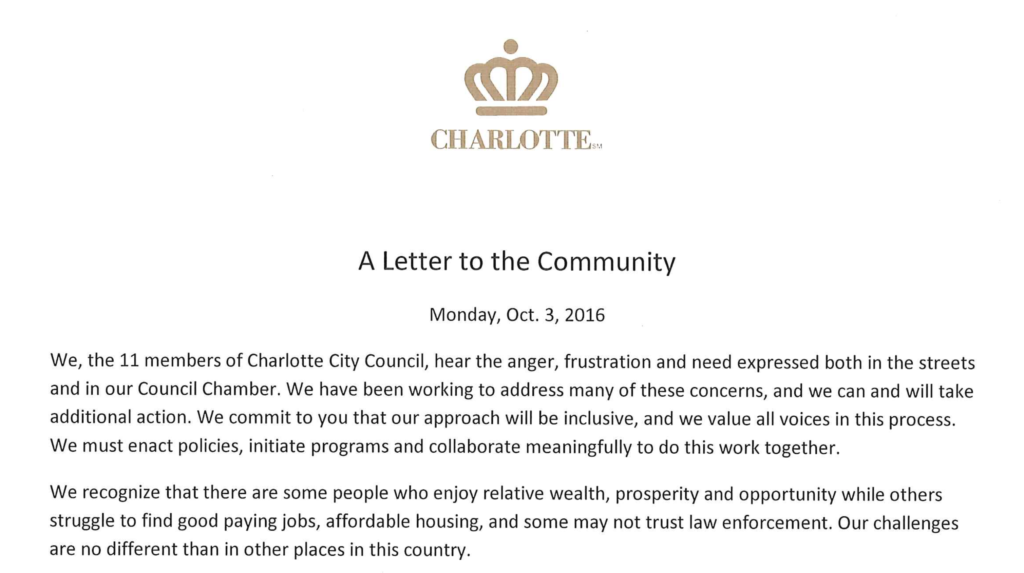
I’m a soccer fan. My parents worked in Eastern Europe when I was a kid, and I played as a goalkeeper in high school and college. Our team won the Division II DoDDS European Championship my junior year against the high school from the Supreme Headquarters Allied Powers Europe (SHAPE). I saved two penalty kicks during a shootout in the final — a highlight of my youth. I don’t play much now, but I enjoy watching it on TV, and I would love to have a professional team nearby so that I could take my daughter and share the love of the sport.
Right now we have two cities in North Carolina vying to lure a Major League Soccer team — Raleigh and Charlotte — and both have been in the news the last two weeks. Last week, North Carolina FC announced its plans for a new stadium in downtown Raleigh, and this week the Charlotte City Council voted to fund a connector for the Bojangles’ Coliseum to lure an MLS team. While there has been a lot of conversation about the Raleigh stadium proposal, it has been the Charlotte vote this week that stood out most.
On Monday, the council voted to fund an $18.5 million connector between the Bojangles’ Coliseum and Ovens Auditorium in part to help woo an MLS team. The money was to come from the $900 million capital improvement program that also funds housing, roads, and other infrastructure. One City Councilman proposed that the funds come instead from the hotel/motel tax revenue, as those funds can be use exclusively for tourism projects. Doing so would allow this money to be used for something like affordable housing.
In the backdrop of this conversation is the death of Keith Lamont Scott at the hands of police last year and the subsequent protests. The City Council penned a “Letter to the Community” in October. The letter acknowledges that “there are some people who enjoy relative wealth, prosperity and opportunity while others struggle to find good paying jobs, affordable housing, and some may not trust law enforcement.” The Council then pledged its energy to:
- Safety, Trust and Accountability,
- Access to safe, quality and affordable housing, and
- Good paying jobs.
“I think we missed an opportunity to do something bold, to take some real action to demonstrate our commitment to the letter.”
After the Council voted 5-4 to reject using hotel/motel tax revenue, Council member Ed Driggs said, “I think we missed an opportunity to do something bold, to take some real action to demonstrate our commitment to the letter. We have worked hard as a council, but we could have demonstrated to the community that we really meant it.” He was accused of political tricks and called out for voting against affordable housing in his district, but I’ll leave it to someone else to judge whether his criticism was simply political opportunism. He spoke the truth, and I’ll take it in any form that it comes. This was a missed opportunity, and I’m not the only one who noticed.
It is worthwhile to take a moment and read “The Making of Ferguson: Public Policies at the Root of its Troubles” written by the Economic Policy Institute in the aftermath of Michael Brown’s death and the hands of a police officer in Ferguson, MO in 2014. This should be required reading for anyone working in our field, to catch a glimpse of how our public policy has shaped neighborhoods and is still at the root of many of the challenges cities face today. The challenges are enormous, and we need all the resources and commitment that we can get. If so many of your neighbors are getting left behind and priced out, then maybe you can’t afford to let $18.5 million dollars go to attract an MLS team that most likely will not have an economic impact on the communities you have committed to prioritize.
I’m a soccer fan and would love to go to MLS games in my backyard. I am their target demographic. But when it comes to investing community resources, local governments must make bold commitments to those who “struggle to find good paying jobs, affordable housing, and… may not trust law enforcement” as Charlotte’s letter stated. Not only must they make those commitments, they must also have the perseverance and courage to follow through. Even if it costs them a sports team.
Update: After this was posted, Charlotte Mayor Jennifer Roberts called for a special discussion on affordable housing on August 28, calling on the city to spend more money on housing. Stay tuned for more information.








